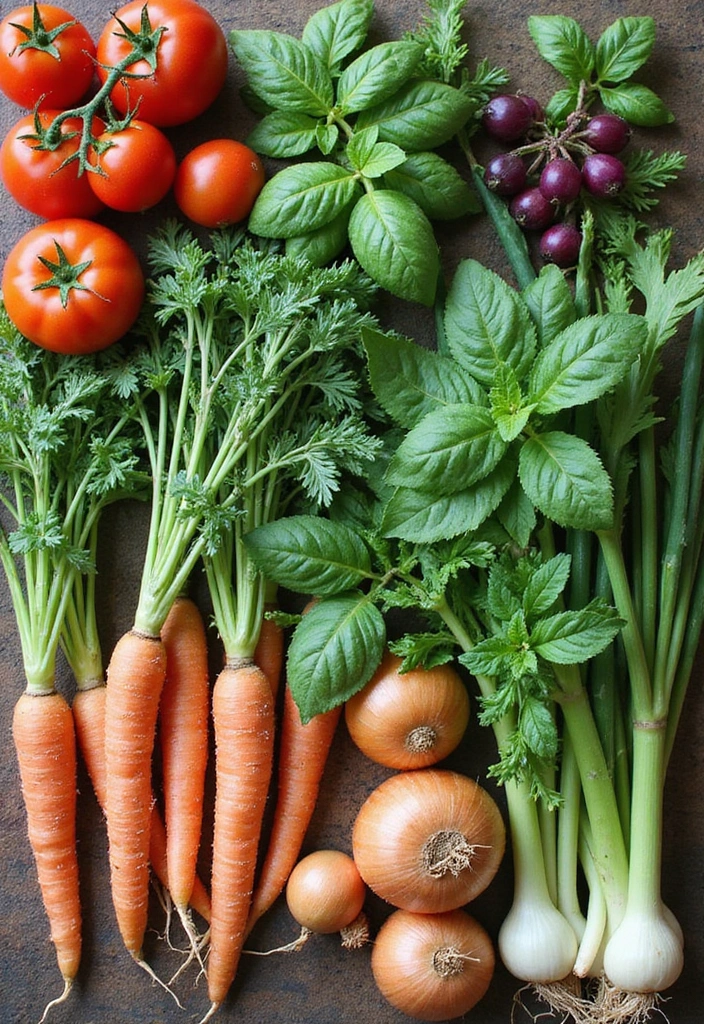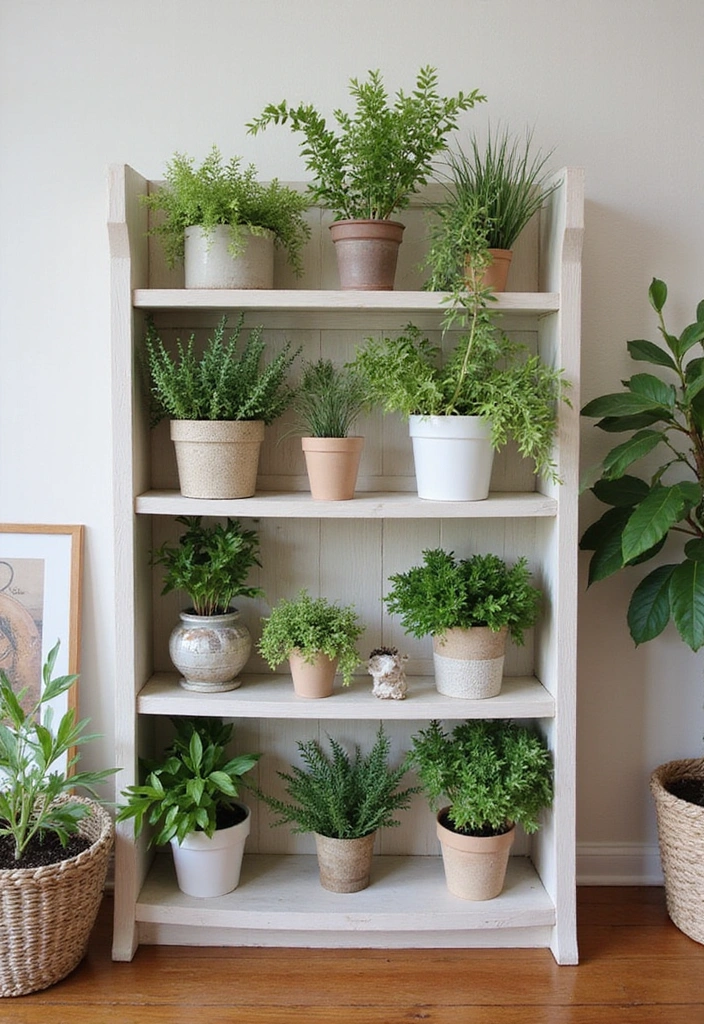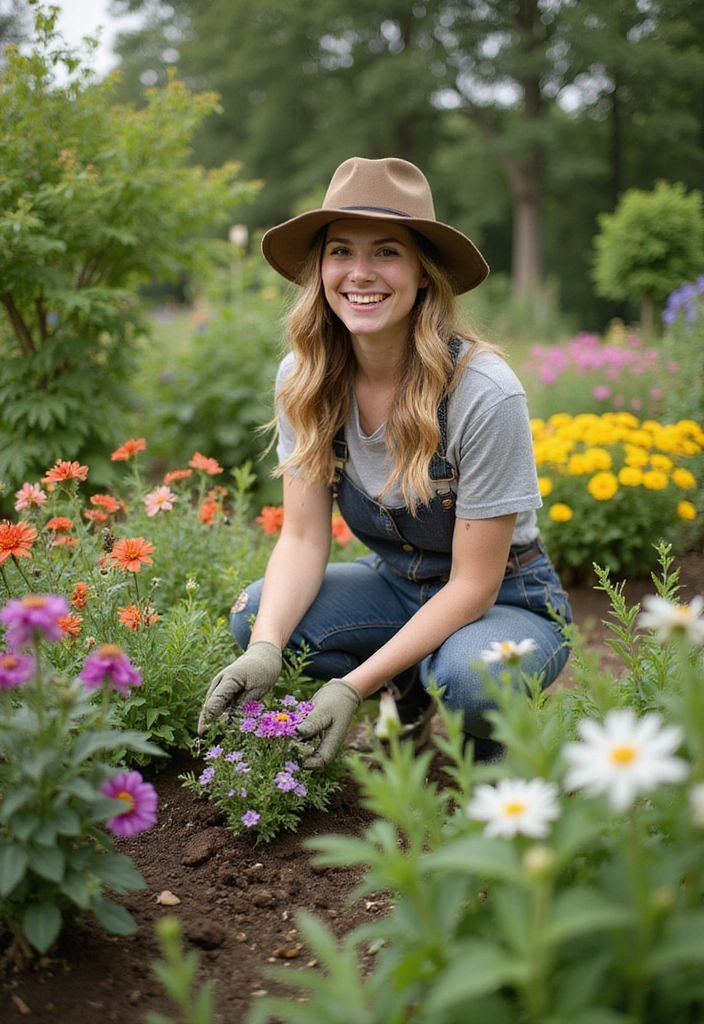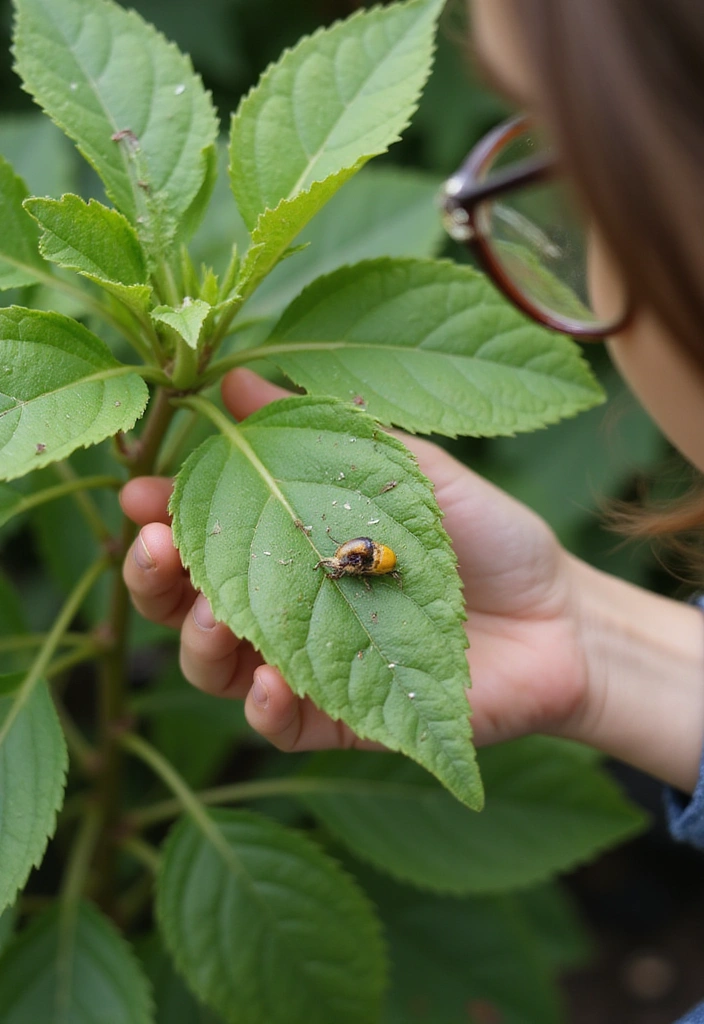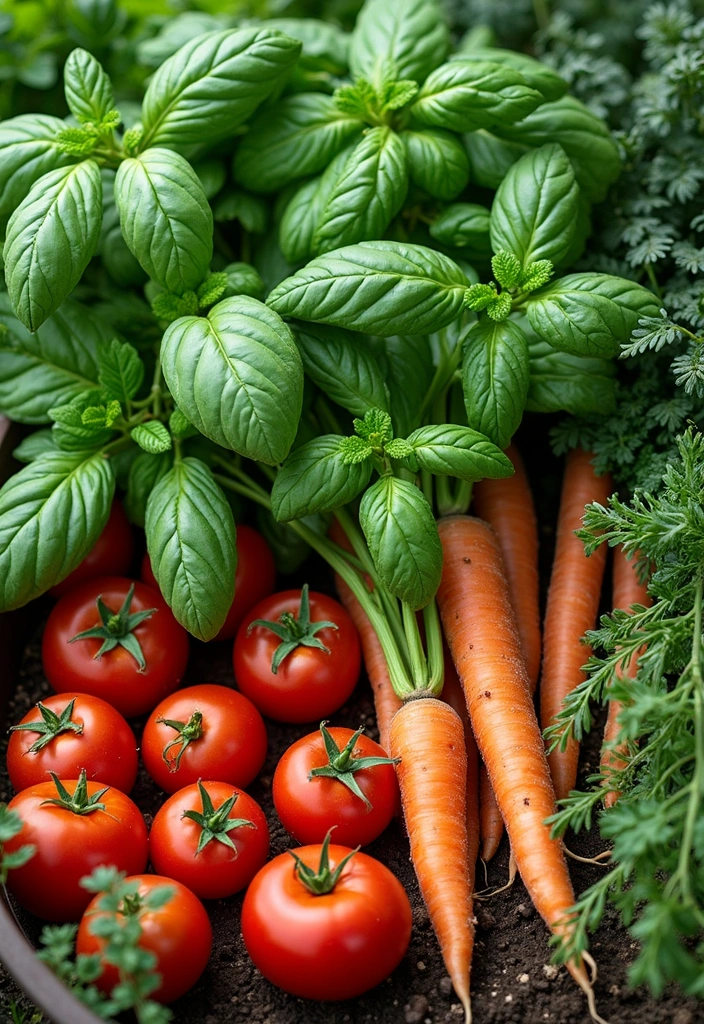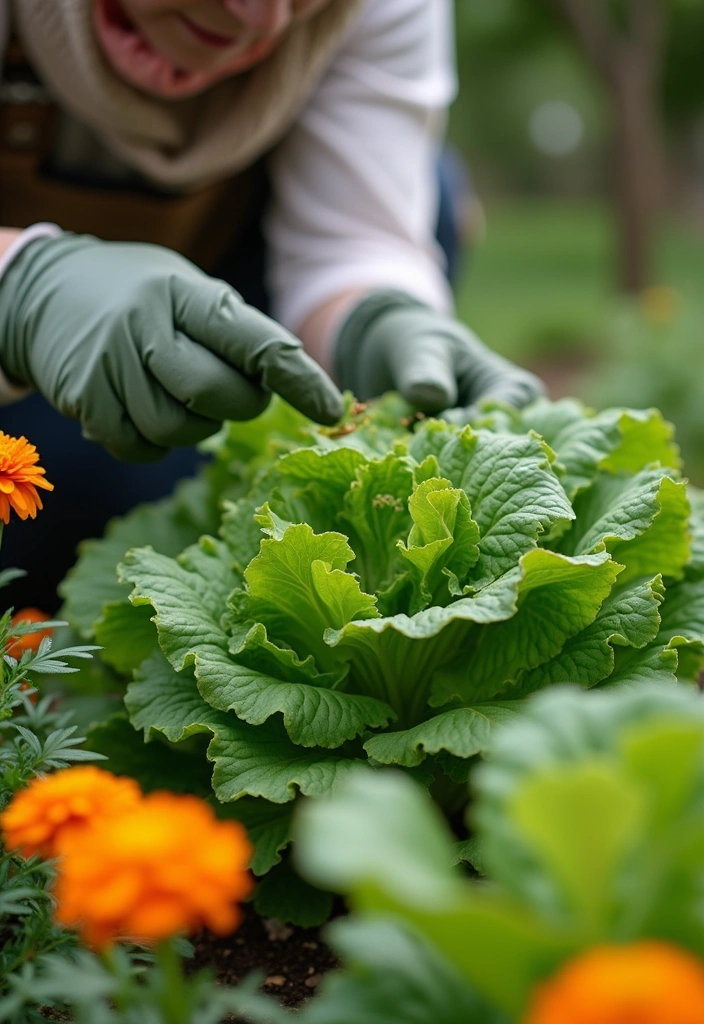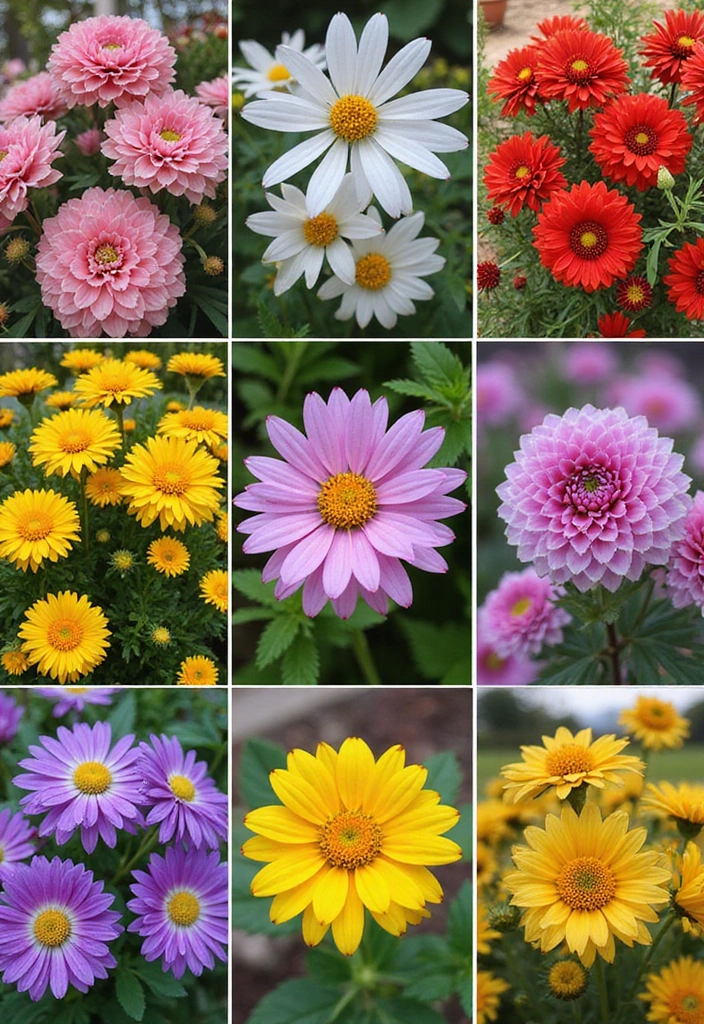Revolutionize your green thumb! Discover 20 mind-blowing vegetable garden hacks every beginner should know to grow more, easily. Prepare to be amazed by the simplicity and power of hack #15!
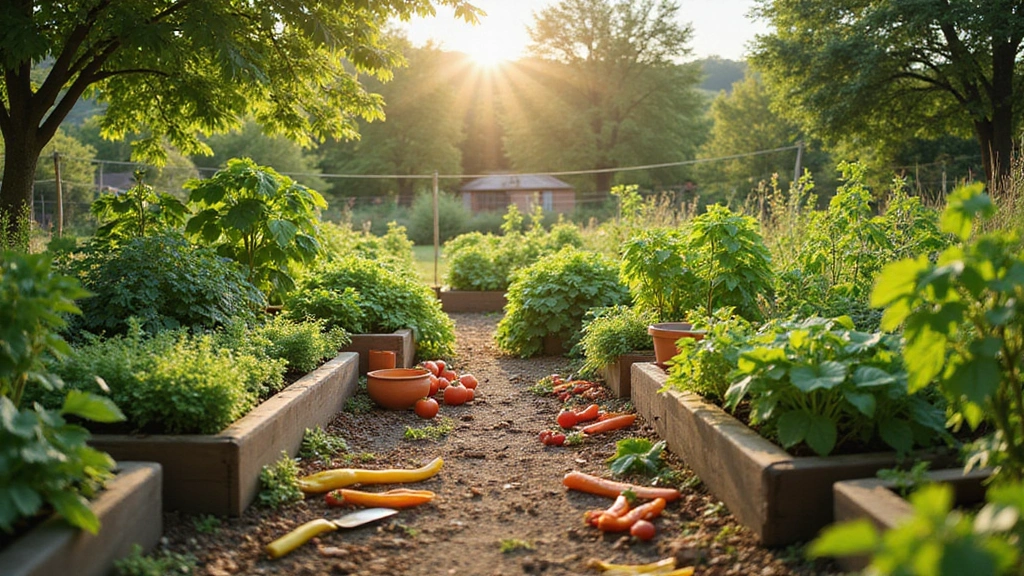
Starting a vegetable garden can seem overwhelming, especially for beginners. But fear not! With a few clever hacks, you can transform your gardening experience into a fun and fruitful endeavor. These genius tips will not only make your gardening easier but also help you grow a lush and bountiful harvest. You’ll find tricks to save time, improve plant health, and make the best use of your space. Get ready to discover simple solutions that will surprise you and make your green thumb even greener!
Whether you’re short on space or just looking for ways to streamline your gardening tasks, these hacks are sure to inspire you to get your hands dirty and start planting. Let’s dig right in!
1. Vertical Gardening: Save Space
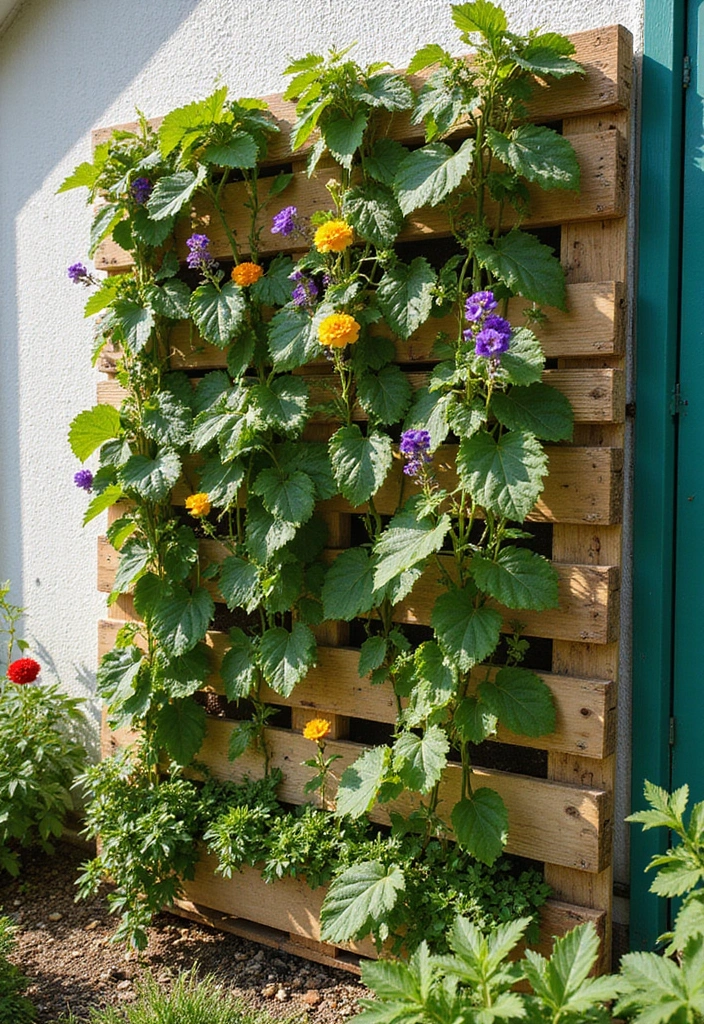
If you’re limited on garden space, vertical gardening is your best friend. Not only does it save ground space, but it also adds dimension to your garden. You can utilize trellises, hanging pots, or even repurpose old pallets to create a stunning vertical garden. Climbing plants like peas, cucumbers, and beans are perfect for this approach.
Here are some tips for vertical gardening:
– Use sturdy supports that can handle the weight of your plants.
– Choose the right plants; lighter ones tend to thrive better in vertical settings.
– Keep in mind sunlight exposure; ensure your vertical garden gets enough light.
With a little creativity, you can turn any wall or fence into a thriving green space!
2. Companion Planting: Friends in the Garden
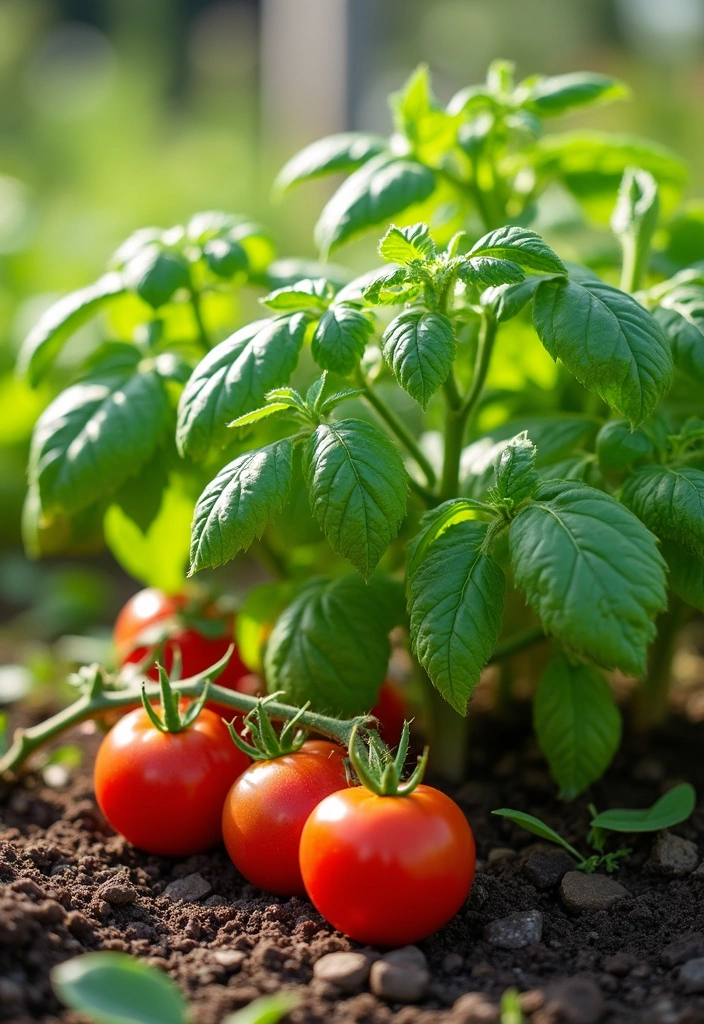
Companion planting is a fantastic way to maximize your garden’s productivity. Certain plants have natural relationships that can enhance growth, deter pests, and improve yield. For instance, pairing tomatoes with basil not only improves tomato flavor but also helps repel insects.
Here’s how to get started with companion planting:
– Research which plants work well together. For example, carrots and onions make great companions.
– Use the native qualities of plants to your advantage; some repel pests while others attract beneficial insects.
– Keep it simple. Start with a few combinations and expand as you learn more.
This technique not only promotes healthier plants but also brings a beautiful diversity to your garden!
3. DIY Plant Markers
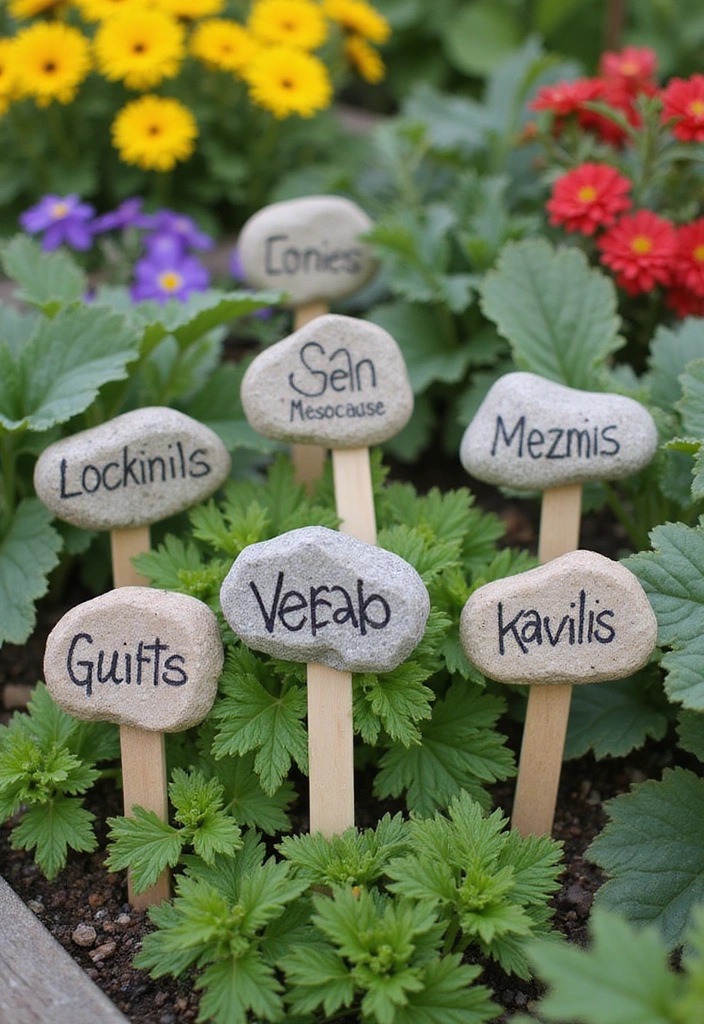
Remembering what you’ve planted can be tricky, especially when everything starts sprouting! DIY plant markers are a fun way to keep track of your veggies while adding a personal touch to your garden. You can use stones, popsicle sticks, or even upcycled materials to create unique markers.
Here are some ideas:
– Paint or write the plant names on stones for a rustic look.
– Use wood pieces, drill in a hole, and attach them with twine.
– Get creative! Use stamps or stickers to beautify your markers.
These markers will not only help you identify your plants but also bring a bit of personality to your garden!
4. Soil Health: The Foundation of Growth
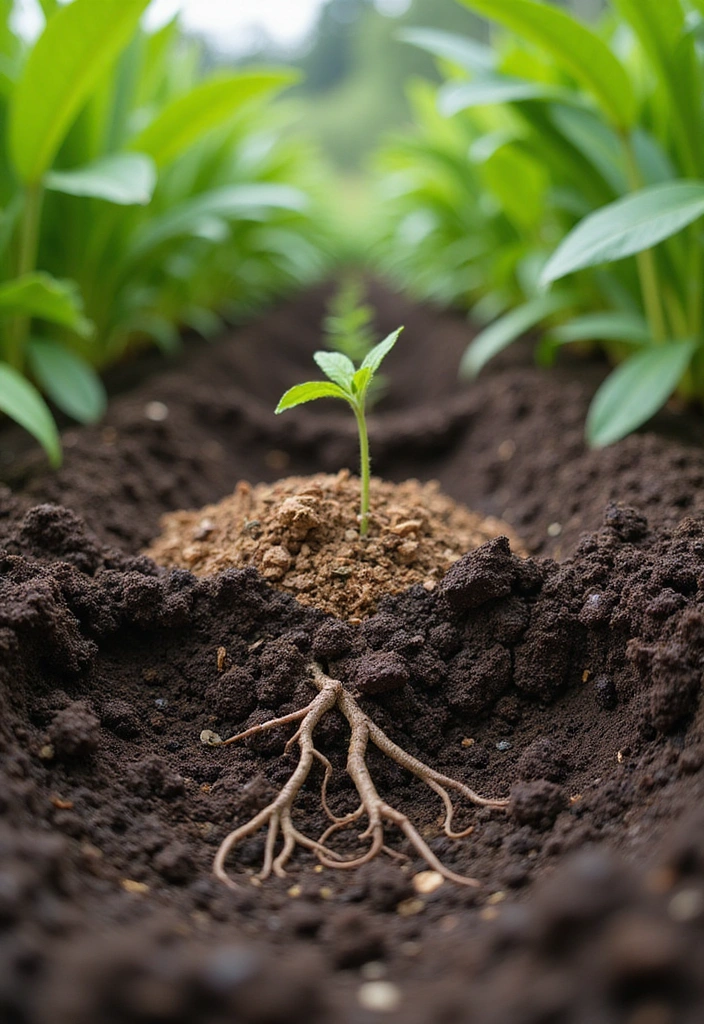
Healthy soil is the key to a thriving vegetable garden. It’s crucial for providing the necessary nutrients your plants need to grow. Regularly testing your soil for pH levels and nutrient content can greatly enhance your gardening results. Adding organic matter like compost or well-rotted manure helps improve soil structure and fertility.
Here are some easy soil tips:
– Conduct a basic soil test to understand its composition.
– Rotate crops yearly to prevent nutrient depletion.
– Mulching can help retain moisture and suppress weeds.
Investing in your soil will pay off with bountiful harvests and robust plants!
5. Succession Planting: Harvest Year-Round
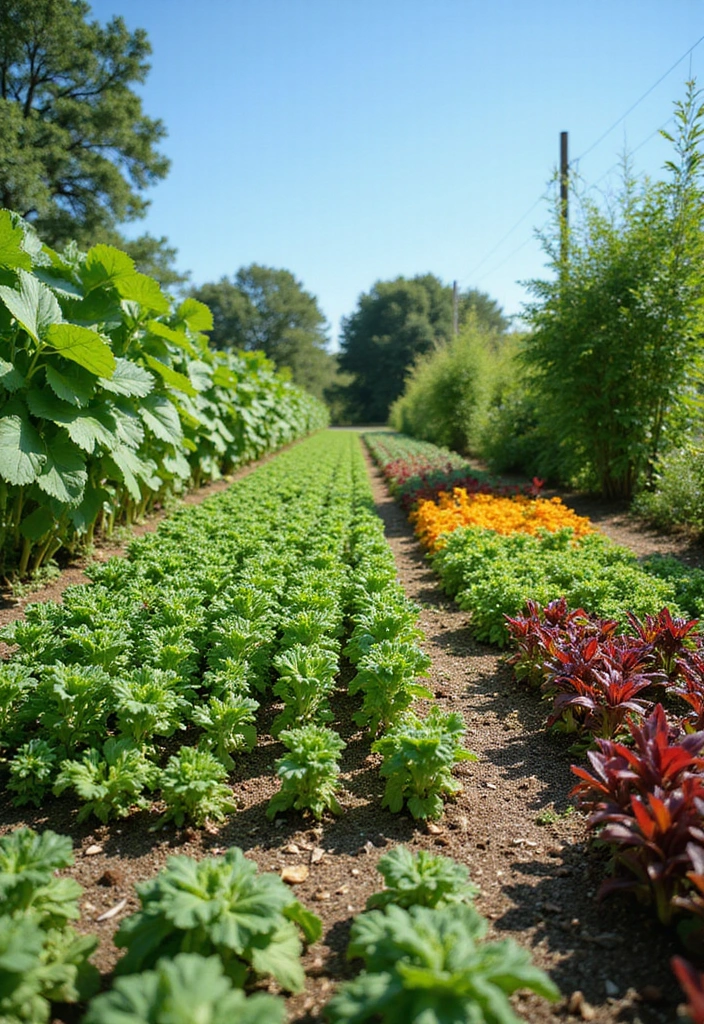
Want to enjoy fresh vegetables all year long? Succession planting is the way to go! This technique involves planting a new crop in the place of a harvested one, ensuring you maximize your garden’s production throughout the growing season.
Consider these tips for successful succession planting:
– Plan your garden layout based on the growing times of different crops.
– Start quick-growing crops like radishes or lettuce for early yields.
– Monitor the growing times and plan your next planting accordingly.
By practicing succession planting, you can enjoy continuous harvests and reduce the empty spaces in your garden!
6. Natural Pest Deterrents
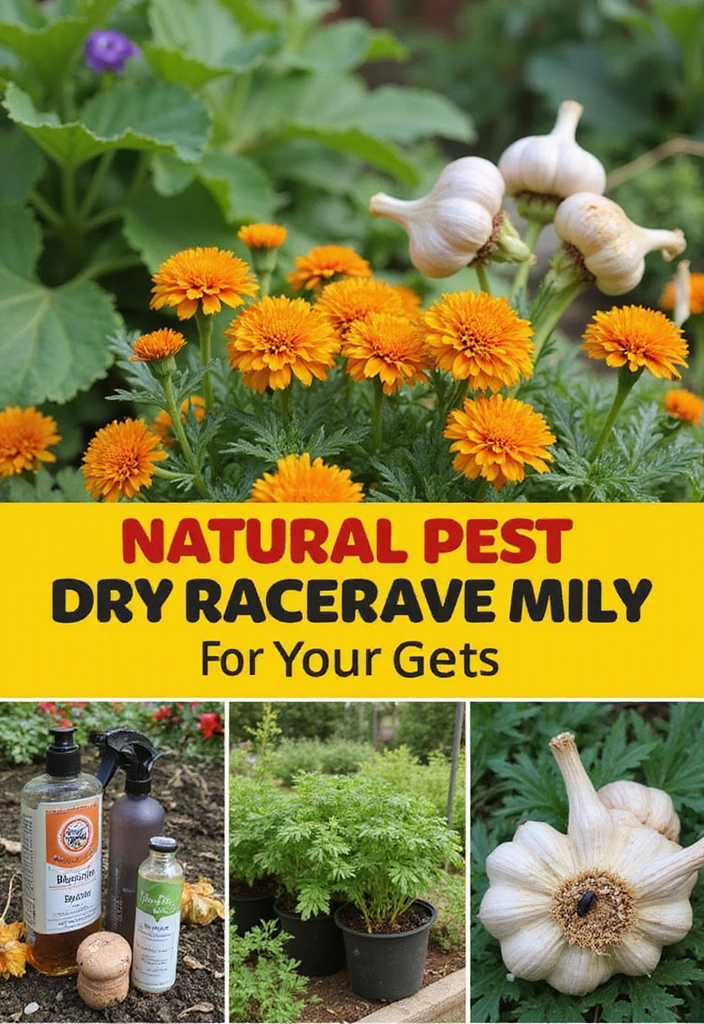
Struggling with pests? You’re not alone! Instead of relying on chemical pesticides, turn to natural solutions. Many common household items can deter pests while keeping your garden safe. For example, a mixture of water and soap can control aphids, while planting marigolds can repel nematodes.
Here are some effective natural deterrents:
– Use neem oil for a wide range of pest control.
– Create garlic or chili sprays to keep unwanted bugs at bay.
– Introduce beneficial insects like ladybugs and lacewings to your garden.
These natural methods are not only eco-friendly but can also be very effective in keeping your garden healthy!
7. Watering Wisely: The Right Techniques
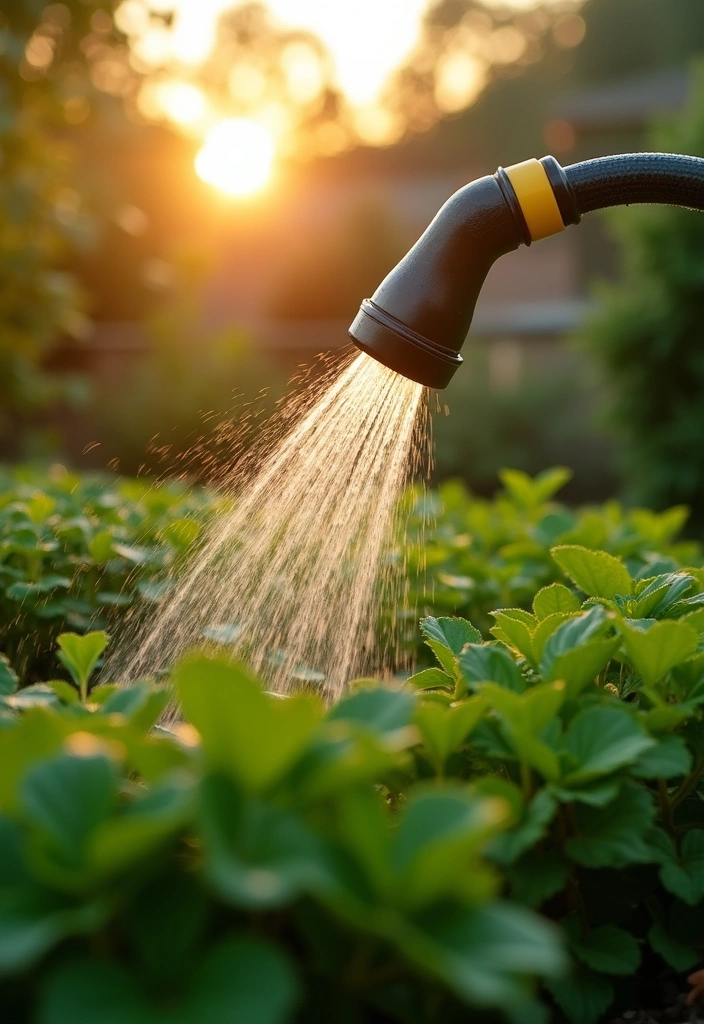
Watering your vegetable garden may seem straightforward, but there are techniques that can enhance efficiency and plant health. Deep watering is better than frequent, shallow watering, encouraging roots to grow deeper. Early morning is the best time to water, minimizing evaporation.
Consider these watering best practices:
– Use soaker hoses or drip irrigation to deliver water directly to the roots.
– Monitor the moisture level of your soil; it’s better to underwater than overwater.
– Mulching can help retain soil moisture and reduce water needs.
By mastering watering techniques, you’ll promote stronger plants while conserving water!
8. Composting 101: Turn Waste into Gold
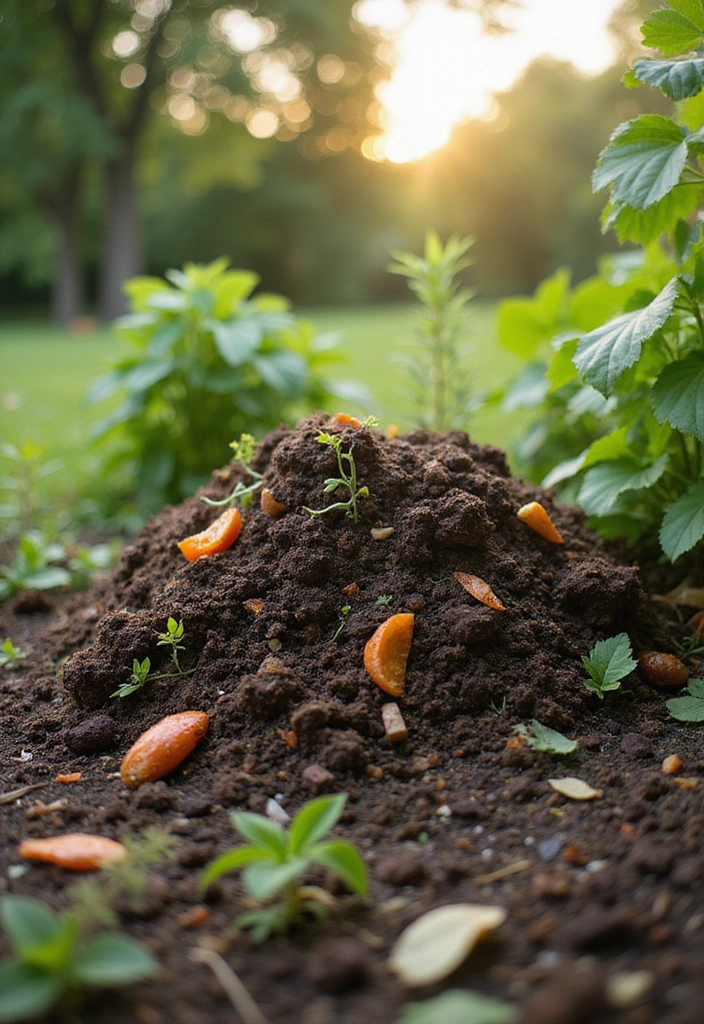
Composting is a fantastic way to recycle kitchen scraps and garden waste while enriching your soil. It’s a sustainable method that improves soil structure, provides nutrients, and fosters beneficial microorganisms. Even beginners can start composting easily!
Here are steps to get started:
– Set up a compost bin in your yard, choosing a dry, shady spot.
– Include a mix of greens (nitrogen-rich materials) and browns (carbon-rich materials).
– Turn your compost regularly to aerate it and speed up the decomposition process.
In no time, you’ll have nutrient-rich compost that your plants will love!
9. Use Eggshells for Calcium
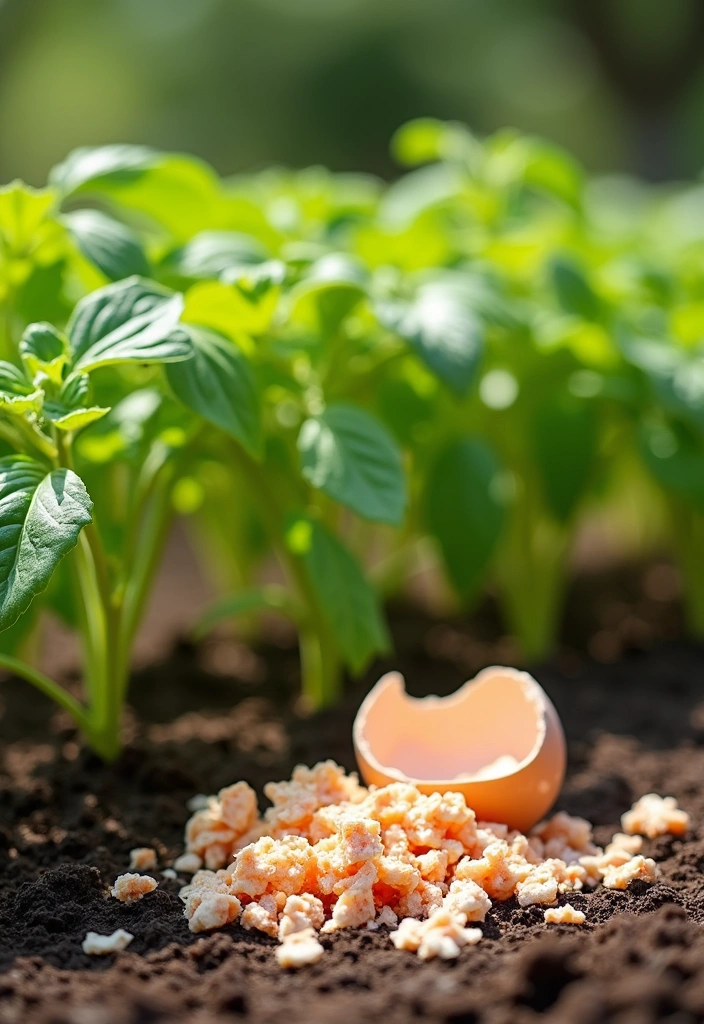
Did you know that crushed eggshells can be a fantastic source of calcium for your vegetable garden? They help prevent blossom end rot in tomatoes and peppers, making them a useful addition when planting. Simply rinse and dry the shells, then crush them before sprinkling around your plants.
Here’s how to use them effectively:
– Add crushed shells to soil when planting tomatoes, peppers, and eggplants.
– Mix them into your compost for an added nutrient boost.
– Store leftover shells for future use; they can last quite a while!
This eco-friendly hack utilizes what you already have, promoting a healthier garden without any extra cost!
10. Grow Your Own Herbs Indoors
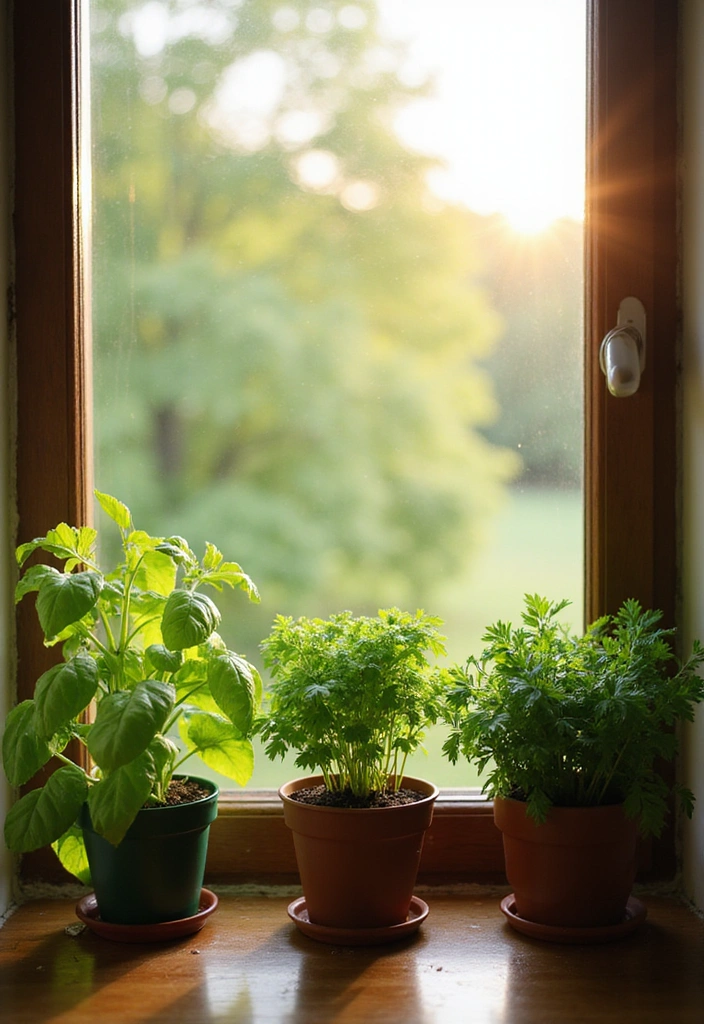
Even if you have limited outdoor space, you can still enjoy gardening by growing herbs indoors! Herbs like basil, mint, and parsley thrive well on kitchen windowsills. They not only add flavor to your dishes but also brighten up your home.
Here are some tips for indoor herb gardening:
– Use pots with good drainage and quality potting soil.
– Ensure they receive plenty of natural light; a south-facing window is ideal.
– Regularly trim your herbs to encourage new growth and keep them bushy.
With just a little care, you can have a fresh supply of herbs at your fingertips all year round!
11. Tackle Weeds with Mulch
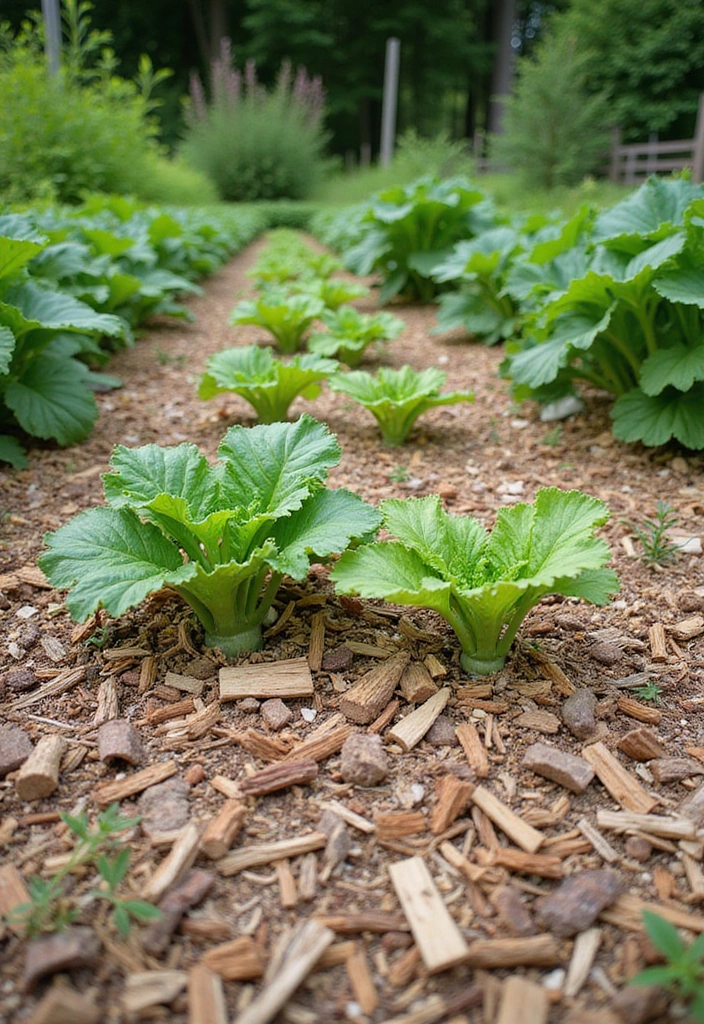
Weeding can be a gardener’s nightmare, taking up precious time and energy. A simple yet effective way to manage weeds is by applying mulch. Mulch suppresses weed growth, retains moisture, and adds nutrients to your soil as it decomposes.
Consider these mulch options:
– Organic mulches like straw, wood chips, or shredded leaves work wonders.
– Apply a layer of mulch around your plants, leaving a small gap to prevent rot.
– Remember to refresh your mulch every season for the best results.
This hack not only simplifies weed control but also boosts the overall health of your garden!
12. Plant Perennials for Long-Term Benefits
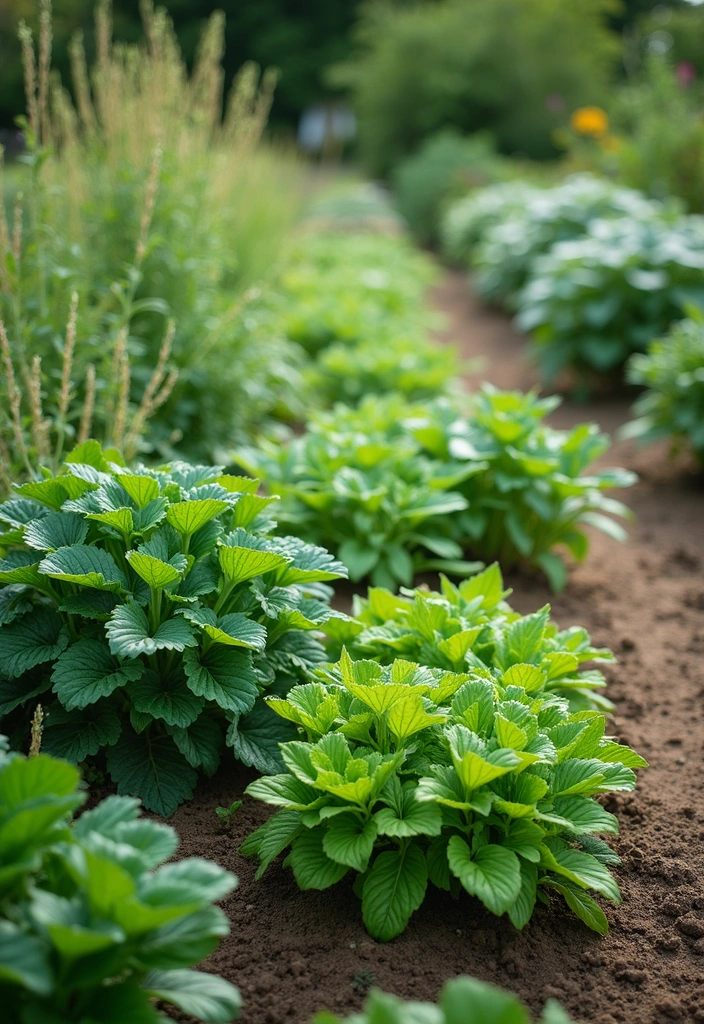
If you want to reduce replanting efforts, consider integrating perennials into your vegetable garden. Perennials come back year after year, requiring less maintenance. Options like rhubarb, asparagus, and some herbs can provide a steady supply of fresh produce.
Here’s why you should consider perennials:
– They save time and effort in the long run.
– Many perennials improve soil health with their deep root systems.
– They can create beautiful, structured gardens that look great all year.
With the right perennials, your garden can be both productive and visually appealing!
13. Use Raised Beds for Better Drainage
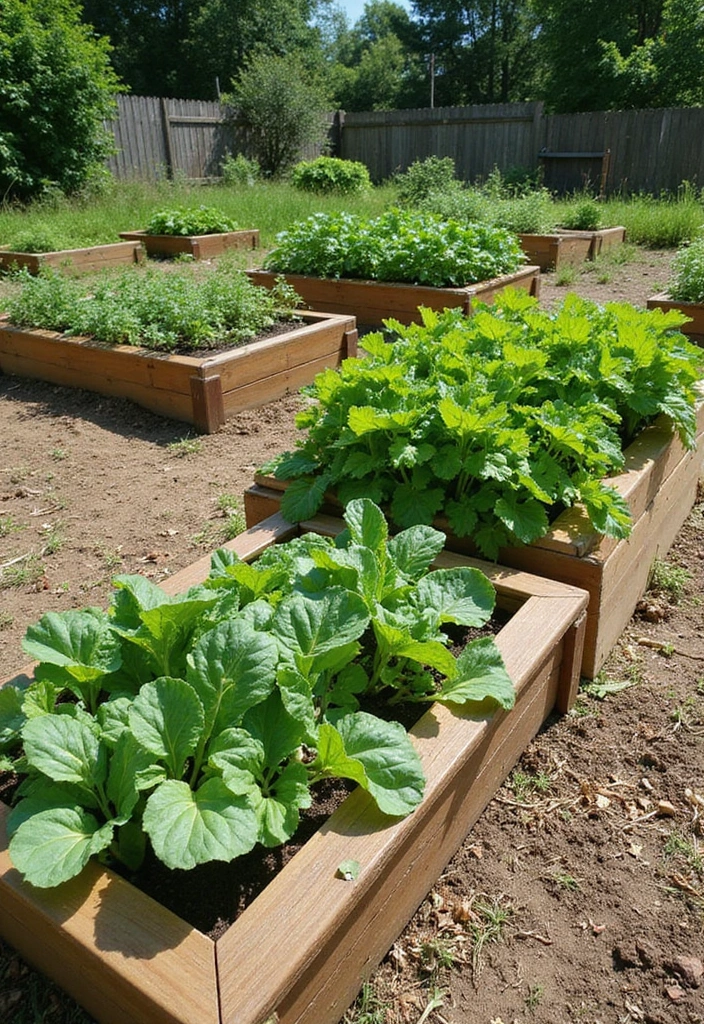
Raised beds are a popular choice among gardeners for good reason. They improve drainage, allow for better soil control, and make gardening easier on the back! Plus, they can be built to fit any space.
Here are some benefits of raised beds:
– They warm up quickly in the spring, allowing for earlier planting.
– You have more control over the soil quality and composition.
– They can be built to any height, making them accessible to everyone.
By switching to raised beds, you can create an efficient and productive gardening space that stands out!
14. Incorporate Flowers for Pollinators
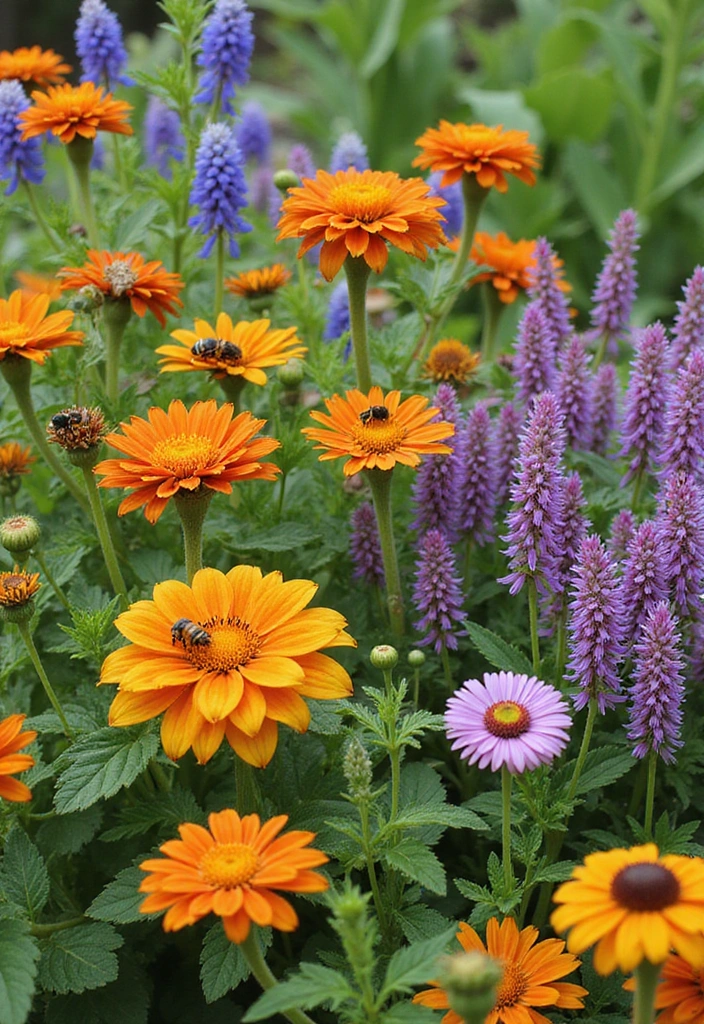
Attracting pollinators like bees and butterflies is crucial for a productive vegetable garden. Incorporating flowers alongside your vegetables not only beautifies your space but also invites these beneficial creatures. Flowers such as marigolds, zinnias, and sunflowers work wonders!
Here are some tips for attracting pollinators:
– Plant a variety of flowers that bloom at different times throughout the season.
– Avoid using pesticides, which can harm pollinators.
– Create a small pollinator garden area to boost attraction.
By incorporating flowers into your garden, you’ll foster a lively ecosystem that benefits your vegetables!
15. Create a Garden Journal
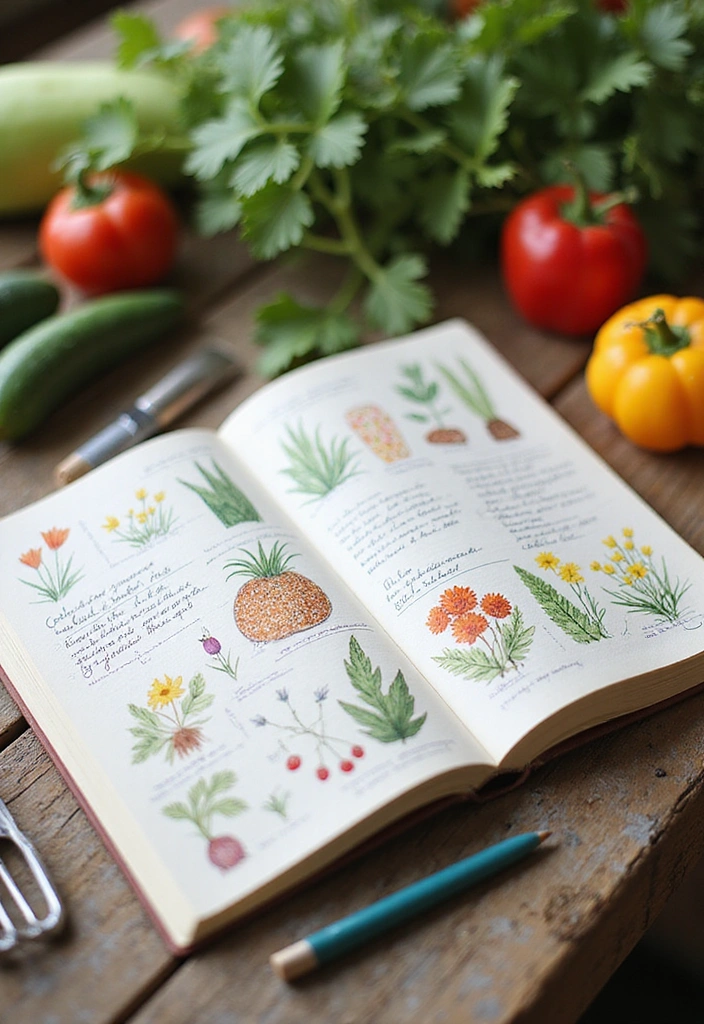
One of the most overlooked vegetable garden hacks is keeping a garden journal. Documenting your planting dates, growth patterns, and harvest details can provide valuable insights for future seasons. It helps track what works and what doesn’t, making gardening more successful!
Here’s how to start a garden journal:
– Record each planting date and variety planted.
– Note any observations regarding plant health and yield.
– Reflect on weather conditions and any pests or issues encountered.
This simple practice will empower your gardening practice, leading to continuous improvement over time!
16. Utilize a Cold Frame for Extended Seasons
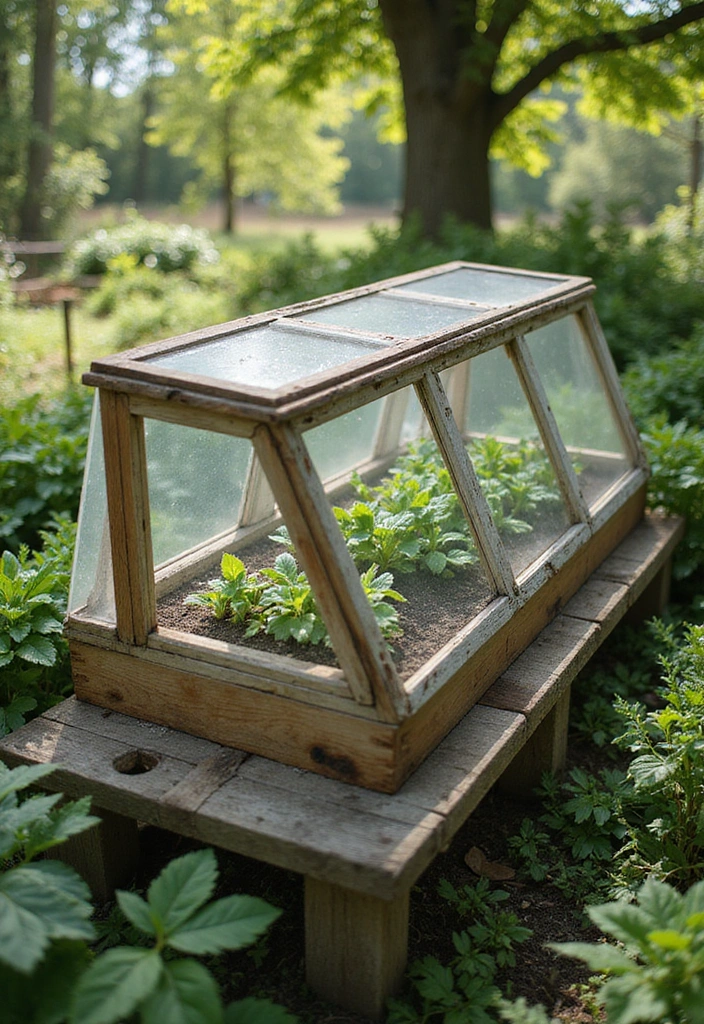
Cold frames are an excellent way to extend your growing season. They protect plants from frost and allow you to start seedlings earlier in the spring. You can make a simple cold frame from recycled materials like old windows or even buy one pre-made!
Here are some benefits of using a cold frame:
– It provides a warm environment for young plants to thrive.
– You can grow crops earlier and later in the season.
– They’re perfect for hardening off seedlings before planting them outside.
By using a cold frame, you can maximize your growing potential and enjoy fresh veggies for longer!
17. Use Coffee Grounds for Nutrition
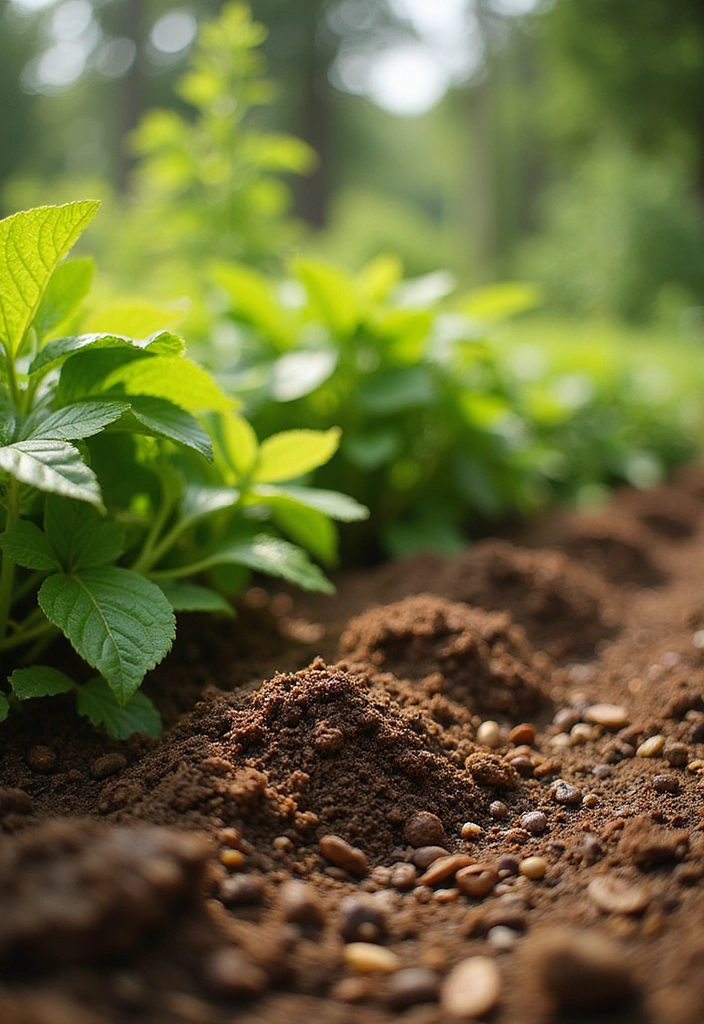
Did you know that coffee grounds can enhance your vegetable garden? They’re rich in nitrogen, making them a fantastic addition to compost or directly into the soil. Plus, they can help deter pests like slugs and snails!
Here’s how to utilize coffee grounds:
– Mix used coffee grounds into the soil or compost pile.
– Sprinkle them around plants as a natural pest deterrent.
– Use them to create a rich, nutrient-filled mulch.
Incorporating coffee grounds is an easy way to boost your garden’s health and recycle waste at the same time!
18. Choose Disease-Resistant Varieties
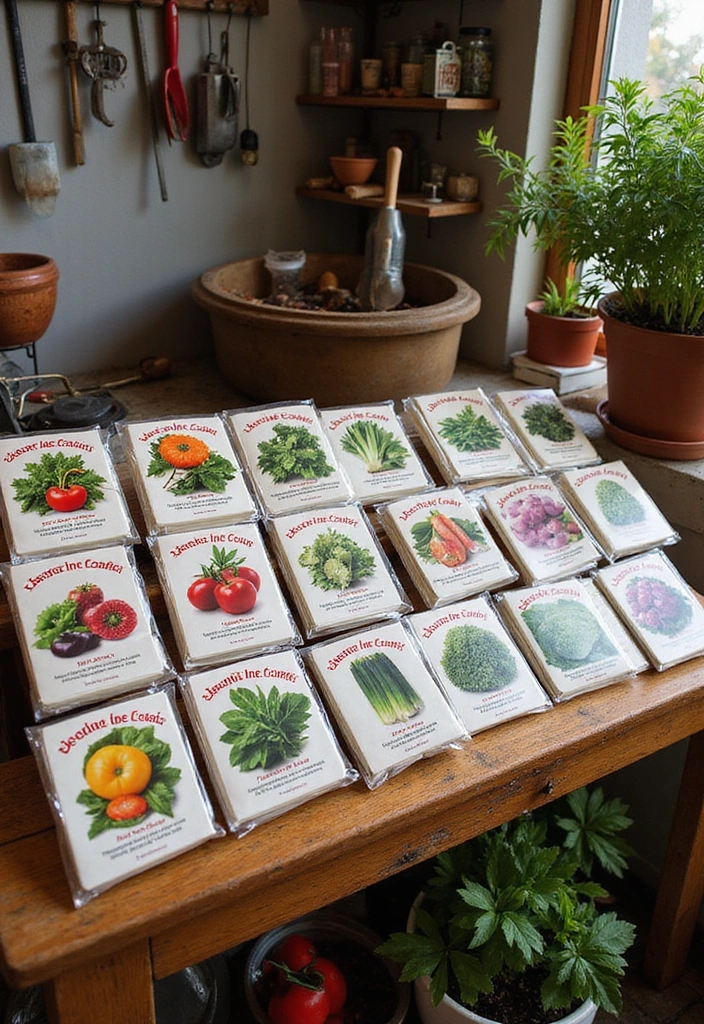
Selecting disease-resistant vegetable varieties can save you a lot of headaches in the garden. Breeding has produced many strains that are less susceptible to various pests and diseases. Doing a bit of research before planting can lead to a more successful yield.
Consider these tips:
– Look for recommendations from local extension services or gardening groups.
– Choose heirloom or organic varieties that have good resistance.
– Read labels and descriptions carefully to understand disease resistance.
Making the right plant choices can lead to healthier, more productive gardens with less effort!
19. Save Seeds for Future Plantings
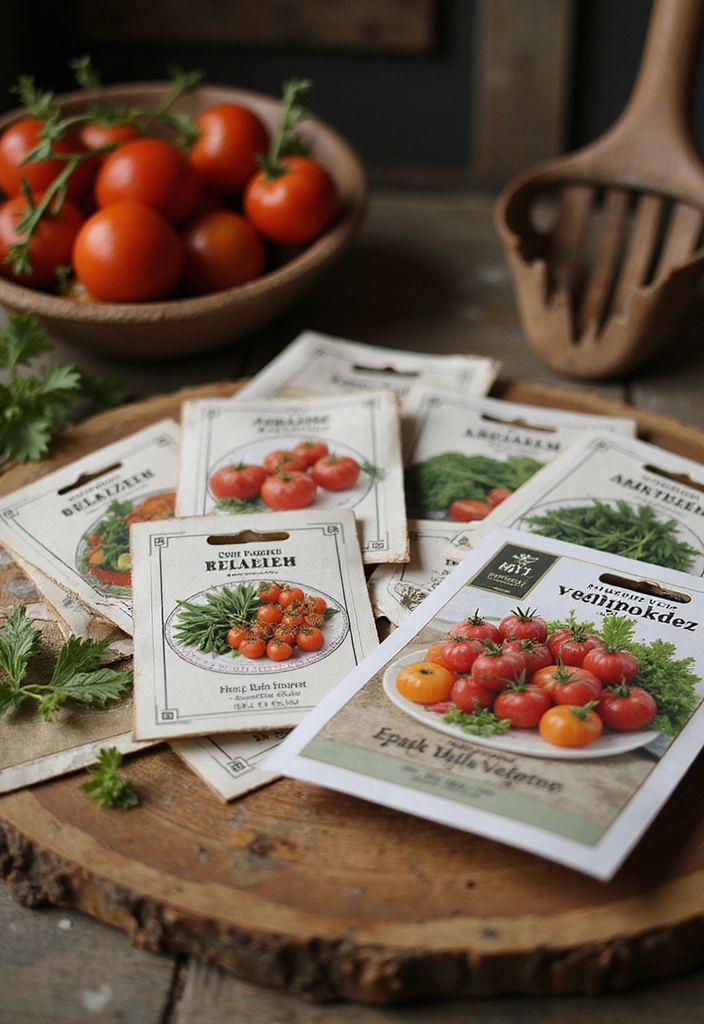
Saving seeds from your best plants can be a rewarding practice! It not only saves money but also allows you to grow varieties you love year after year. Many vegetables, including tomatoes and peppers, produce seeds that can easily be saved and reused.
Here’s how to save seeds:
– Choose healthy, mature seeds from the best plants.
– Clean and dry them thoroughly before storing.
– Label your seeds clearly and store them in a cool, dry place.
This sustainable practice can enhance your gardening experience and ensure you always have access to your favorite plants!
20. Experiment and Have Fun!
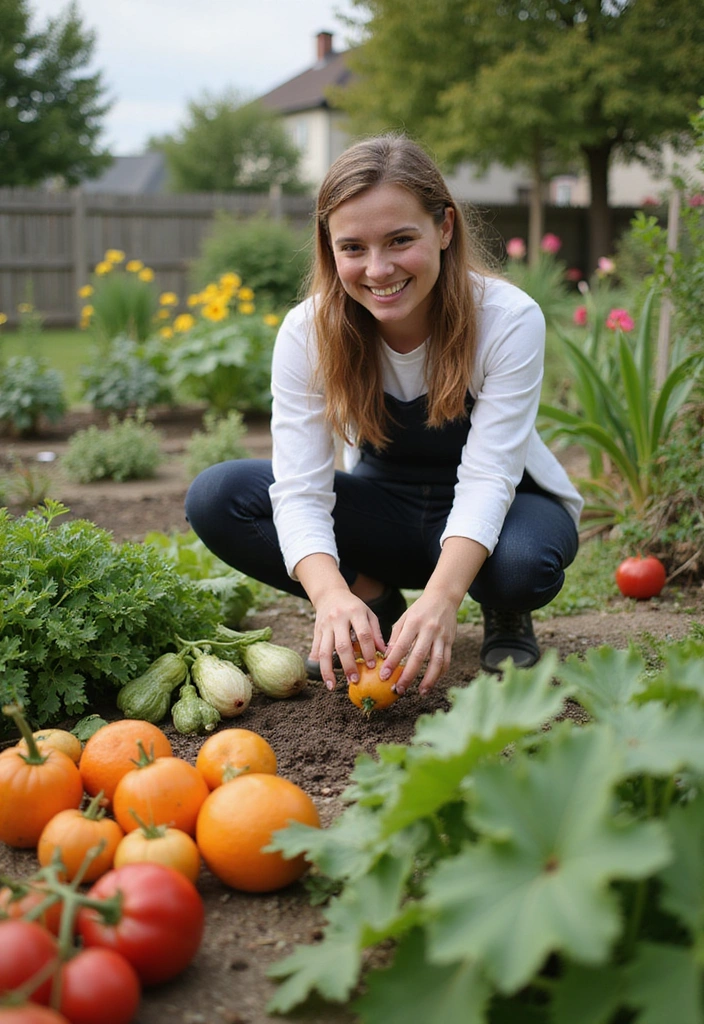
Gardening should be an enjoyable adventure! Don’t be afraid to experiment with different plants, techniques, and layouts. Every gardener has their unique style, and finding what works best for you is part of the joy!
Here’s how to keep it fun:
– Try growing unusual vegetables or herbs you’ve never tasted.
– Create whimsical garden art or decorations to personalize your space.
– Invite friends or family to join you for gardening days and share ideas.
Remember, there’s no one right way to garden. Embrace the journey and let your creativity flourish!
Finally
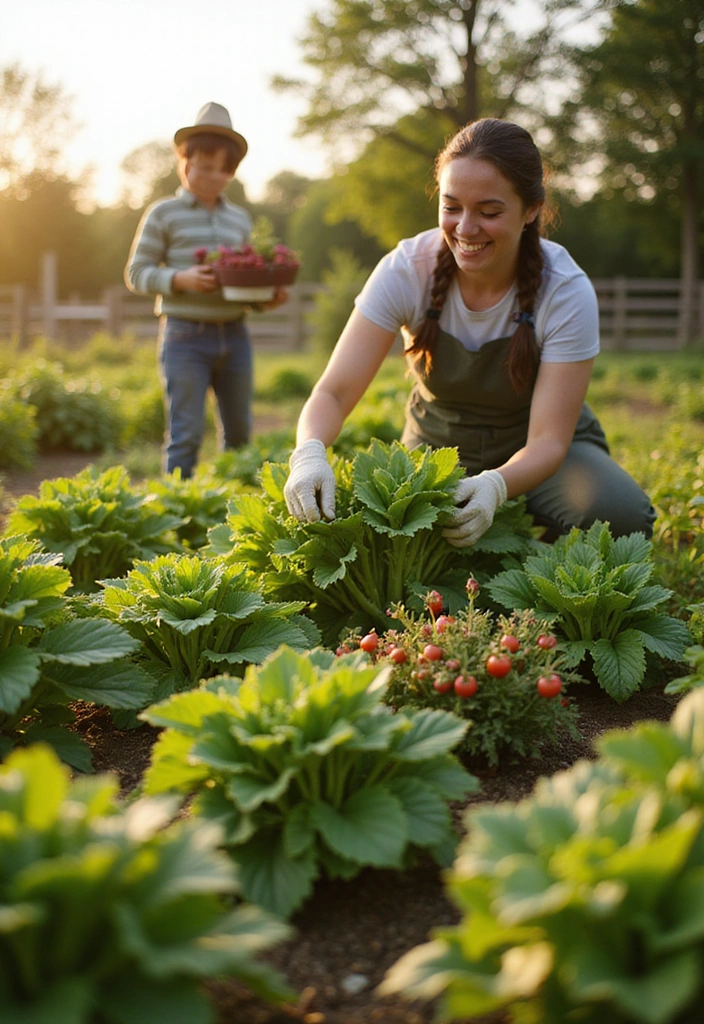
With these 20 vegetable garden hacks in your toolkit, you’re now ready to cultivate a flourishing garden! Each hack brings something special to your gardening journey, making it easier and more productive. Remember, gardening is all about learning, experimenting, and enjoying the process. Embrace your green thumb and let your garden grow!
So grab those seeds and get started—adventure awaits!
